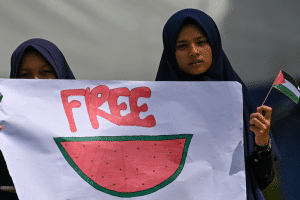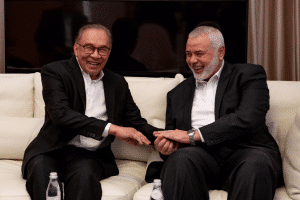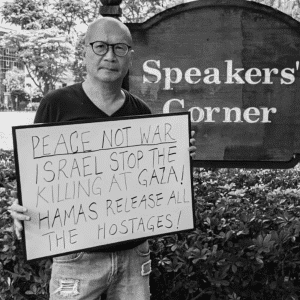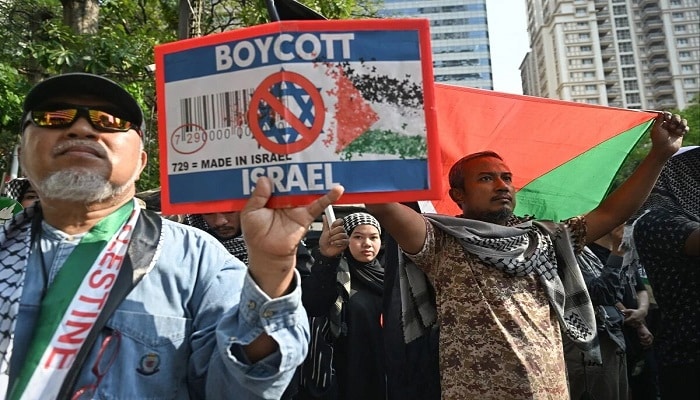PNN – On the eve of the anniversary of the “Al-Aqsa Storm”, a Chinese publication has discussed the continuing effects of the Zionist regime’s attacks on Gaza on the countries of Southeast Asia and the political and social reactions of the people of this region and emphasized that this part of the world is still affected by the situation in Gaza and the Palestinian crisis is still a vital issue for Muslim and non-Muslim communities.
According to the report of Pakistan News Network from Sobh South China magazine, after the “Al-Aqsa Storm” operation in the occupied territories, which turned into a continuous siege of Palestinians, and the scope of Tel Aviv’s attacks even reached Lebanon, many artists and senior officials of Southeast Asian countries, who are mostly Muslims, could not remain silent about these crimes.
On the other hand, the senior officials of Malaysia and Indonesia have condemned the Israeli attacks that have led to the martyrdom of 40,000 innocent Palestinians (civilians) and the continued killing, which shows no sign of stopping, is the reason for the spread of feelings of despair and sadness among the people of this region and assessed a deep sense of helplessness.

In response to this situation, Malaysian graphic designer and illustrator Arif Rafhan Othman created works of art that combine traditional Malaysian batik designs with Palestinian colors and symbols, including the popular symbol of the watermelon.
Regarding the creation of these works, he emphasized that the narrative of the Palestinian struggle has been “distorted and boycotted” and believes that as an artist, he has the duty to inform people about this issue and strengthen the voice of the Palestinian victims with his art.
This Hong Kong publication writes that Malaysians have changed many of their shopping habits after Israel’s (regime) attack on the Gaza Strip and have boycotted American brands such as Starbucks and McDonald’s. So, in the Surya KLCC shopping center next to the Petronas Towers in Kuala Lumpur, Starbucks has closed its doors and replaced it with a Chinese milk tea shop.
Also, “Berjaya Food” company, the owner of the Starbucks franchise in Malaysia, has announced in a report that Over the past year, 91 million 500 Malaysian ringgits (equivalent to 21 million 900 thousand US dollars) have been lost, and the representative of McDonald’s in this country has previously suffered 6 million ringgits (equivalent to approximately 1 million 452 thousand dollars) from the boycotters.

In this connection, Malaysian Prime Minister Anwar Ibrahim has become one of the outspoken critics of the West’s positions by announcing his commitment to the Palestinian cause. So that in his meeting with the German chancellor Olaf Schultz in Berlin, he condemned the country’s pro-Israel stance and pointed out that the Western countries have ignored Tel Aviv’s “oppression, looting and expropriation” of the Palestinians for decades.
Also, after the assassination of Ismail Haniyeh, the head of Hamas’s political office in Tehran, Anwar publicly expressed his support for this resistance group.

“Deborah Augustin”, who is a Malaysian writer, in an interview with “This Week in Asia” magazine, said: “Genocide in Gaza has affected a part of my mind and it is as if “something inside me has fundamentally changed.”
In Indonesia, over the past year, people have been boycotting brands that are believed to support Israel, so that the office of KFC Indonesia lost $21.5 million in the first three months of this year.
In this regard, Chalil Nafis, the head of the Indonesian Ulama Council, which is the largest Islamic organization in the country, emphasized in a statement published today that “don’t stop the sanctions, because the genocide has not stopped either.” This is a common human issue and we should not be silent.”

